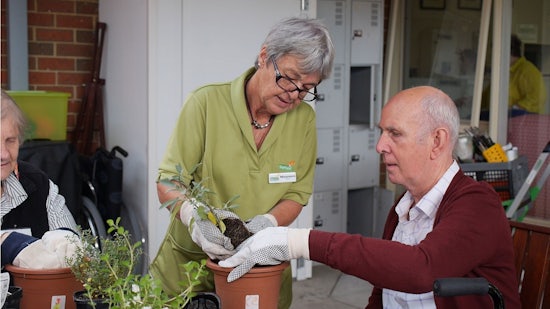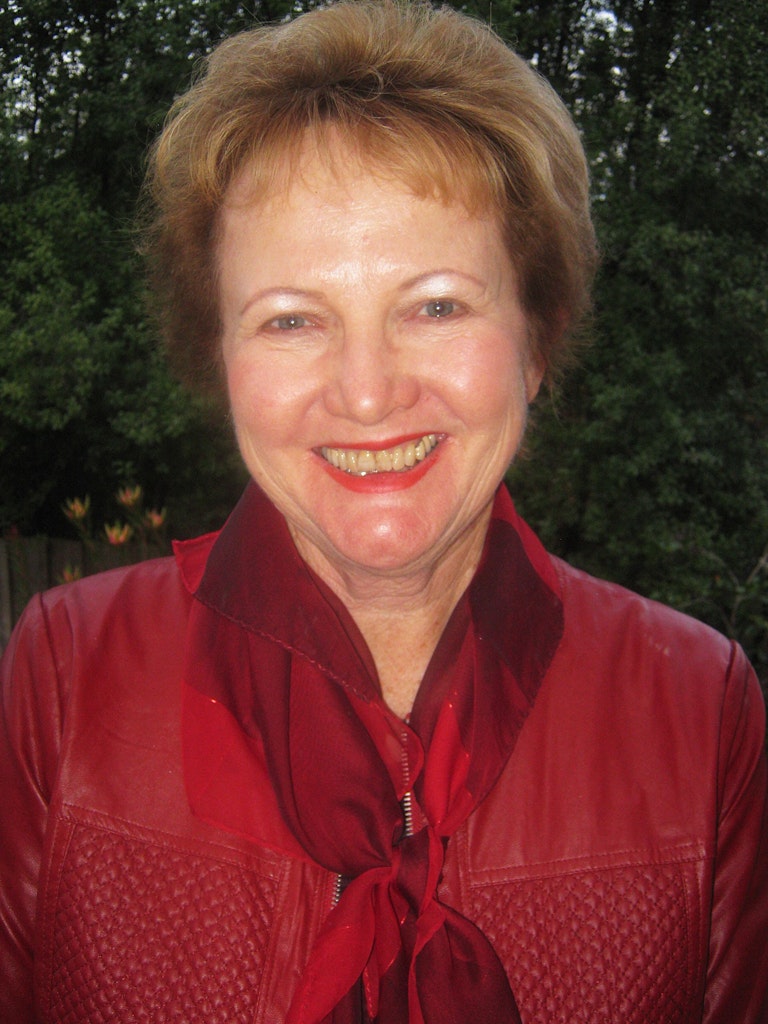Montessori approach supports purposeful activities for people with dementia
What happens when a person with dementia is engaged in activities that are purposeful and meaningful to them? Often little surprises happen.

The Montessori pilot introduced a greater choice of activities, including story telling, reading groups and gardening.
From the gentleman with dementia who doesn’t show great emotion and used to spend quite some time napping during the day but now beats eggs and puts toppings on pizza.
Or the former teacher who frequently paced incessantly but who now engages in activities that reflect her keen interest in mathematics.
These are the kind of changes Trudy Neal, Project Coordinator at Alzheimer’s Australia Vic, saw recently during the pilot project of a Montessori approach to activities for people with dementia, at two planned activity groups in Melbourne.
“Engaging in activities that are purposeful and meaningful helps us to feel good about ourselves. It supports our well-being,” Ms Neal says. “This doesn’t change when a person is diagnosed with dementia.”
“People can live with dementia for many years. At present there is no cure so it’s all about supporting their quality of life on a day-to-day basis,” she says.
Montessori is an example of a person-centred approach supporting purposeful engagement. Originally developed by Italian educator Maria Montessori to assist disadvantaged children, the principles have been adapted to the needs of older people by Dr Cameron Camp Ph.D., Director of Research and Development, Center for Applied Research in Dementia, Ohio.
The Montessori approach has a strong focus on a person’s strengths, their life story and on individual choice. What is it the person can do, what are they interested in? Consequently it is important to identify abilities that people with dementia still have to participate in familiar activities such as preparing vegetables, setting the table, gardening or playing the piano. The environment and the activities can be modified as required as dementia progresses.
“The Montessori approach works with the uniqueness of each person,” Ms Neal says. “It’s about everyday life. And about doing things that are familiar, which gives people a feeling of achievement and contribution. It gives them purpose and a reason to wake up in the morning.”

“What we saw before the project commenced was that the people with dementia who attended the social groups were very passive. With the best of intentions, staff would do most things for them. It was all about ‘I’ll do it for you’ rather than asking ‘what is it that you would like to do’ or ‘would you like to help or participate?’. It went from passive to active involvement.”
Ms Neal explains that as part of the Montessori pilot, a greater choice of activities was introduced. Previously there had been a focus on large group activities in which everyone was expected to participate.
The project introduced smaller group activities based on the skills and interests of the people with dementia who attended the groups. These included story telling, reading groups, gardening, music and dancing. Some clients continued to participate in an intergenerational project where they interacted with local school children and assisted them with maths, spelling and reading.
“People could choose between smaller group activities. They would be invited to join the group rather than be told ‘this is what we’re doing.”
According to Ms Neal, it is important to keep an open mind with the approach and to adapt activities to suit the person. “During the pilot we discovered that a number of men actually enjoyed preparing food so we got them to help out preparing morning tea.”
Ms Neal says the change in people in the pilot groups was overwhelming. “Some took on roles in the day to day running of the group. People now have jobs to do. They welcome people to the group, hand out name tags, arrange flowers for table decorations, set the tables, prepare morning tea, cook the barbecue and help to clear up. These are all tasks staff would previously do while the clients just sat. But the key thing is they are now invited to do these things and most people want to do them.”
The Montessori approach was a big change for staff as well as for clients. Staff were challenged to focus on supporting people with dementia to be as independent as possible and to do what they can for themselves. “What matters is that people with dementia have opportunities to engage in activities that are purposeful and meaningful to them. It’s the engagement that’s important – not the outcome,” Ms Neal says.
Alzheimer’s Australia has developed Purposeful Activities for Dementia. This is an online resource that demonstrates practical ways staff and carers can support people with dementia to engage in purposeful activities in social groups and at home.
Trudy Neal will speak about Purposeful Activities for Dementia at the ‘Living Well, Dying well – A BaptistCare Dementia Forum’ held on 14 September in Sydney. For more information or to register for the event visit the BaptistCare website.























